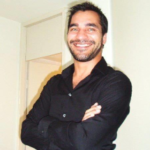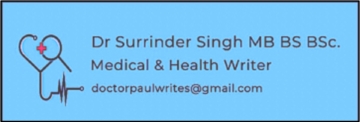Mindfulness Or Madness? The Influence Of Social Media On Mental Health.
Social media platforms such as Facebook, Twitter (X), Instagram, Snapchat and TikTok are ubiquitous. They have weaved their way into every facet of modern-day life.
You may even be one of those influential individuals who have thousands of Instagram followers promoting your chiselled body or brand. Or perhaps you passively monetise an income through affiliate partnerships with your established YouTube channel?
I can’t see myself ever being in either of these situations, as I’m far too shy in front of any camera. However, having some sort of online presence is essential. It has helped me connect with new clients, especially through LinkedIn.
And no, you don’t need 3000 Facebook friends to feel like you’re worth the oxygen you inhale. Known as Dunbar’s number, proposed by the anthropologist Prof. Robert Dunbar in the 1990s, he hypothesised our brains could only handle 150 relationships.
So maybe it’s time to cull that virtual fan club if you have one.
“We have on average five intimate friends, 15 best friends, 50 good friends, 150 friends, 500 acquaintances and 1,500 people we recognise on sight.”
“The 150 layer is the important one: this defines the people you have real reciprocated relationships with, those where you feel obligations and would willingly do favours.“
“People can (and sometimes do) have 500 or even 1,000 friends on Facebook, but all they are doing is including people who we would normally call acquaintances or people we just recognise by sight but don’t know very well.”
While social media platforms can be useful tools for enriching your life, it’s essential to understand how they can seriously influence your mental well-being.
The Benefits For Your Business
Social media has provided me with a convenient and inexpensive way to reach a vast audience. Creating engaging content has increased my visibility and attracted new clientele. It’s also a convenient way to respond to feedback and build professional relationships.
Another advantage of social media for businesses is the ability to target specific demographics. Social media platforms collect vast amounts of user data, including age, gender, interests, and location. By utilising this data, my business can target specific audiences within my writing niche, increasing the likelihood of a response to call-to-action (CTA) conversion.
Positivity For Your Personal Life
Used wisely, social media can enhance your personal life.
It has helped me communicate with close ones worldwide and network with other communities where we have common interests. It also provides me with emotional support on those not-so-good days.
For those who live remotely, feel marginalised, are socially anxious, or have limited independence, it’s a means of reaching out so one does not feel excluded.
However, like anything, it’s all about equilibrium. And the balance can be tipped in the opposite direction very easily.

Social Media’s Sinister Sway On Mental Stability
While social media can be a useful tool for business, it can also have negative effects on mental health.
A study at the University of Pennsylvania among 143 students suggested that excessive use of social media is linked to increased rates of depression, anxiety and loneliness.
“limiting social media use to approximately 30 minutes per day may lead to significant improvement in well-being.”
Take me, for example. I once scored a trifecta of being in a prolonged pandemic lockdown, a bout of severe clinical depression and COVID-19. For weeks, I was recumbent on my sofa with a box of tissues in one hand and my portable device in the other.
Switching aimlessly between the ‘apps’, I could only absorb information about others’ lives because I had nothing remotely interesting to say about myself. I resembled a digital voyeur. I would ponder photos of friends posing on an exotic island beach sipping a margarita or dirty martini.
Comparing yourself to others who have curated and posted flawless images can lead to feelings of inadequacy and low self-esteem.
People tend to present their best selves online, showcasing their achievements and successes while hiding their failures and struggles.
Nobody’s life can ever be in perpetual Utopia. You’re more likely to see their airbrushed existence.
Then it became worse. Alerts would inform me on Facebook that I had an anniversary from a trip the same day from years ago. Was that holiday to Canada, Alaska, or Iceland that far back?
I felt ridiculous, believing I was becoming envious of my own existence. And I even started questioning my sanity.
The ‘Fear Of Missing Out’ phenomenon’ (FOMO) is also a form of psychological manipulation. And the more you scroll and constantly refresh your phone, the more you may be fuelling your addiction, detracting you from real-life connections.
Social media platforms are designed to keep you hyper-connected and snare your concentration. Clicking the ‘like’ button gives you a transient burst of dopamine, the so-called ‘reward’ hormone.
Do you think Facebook (or Meta) would have fizzled out if an “I’m not really that bothered, to be honest” button had been invented simultaneously?
Social media platforms such as TikTok were introduced in 2017 by ‘ByteDance’. It has been inextricably linked to certain forms of maladaptive behaviour among young children.
One child in the UK required major abdominal surgery following a viral trend on TikTok. The platform encouraged children to simulate tongue piercings by placing magnets in their mouths, which can be inadvertently swallowed. In this child’s case, he did and it caused a major bowel obstruction.
TikTok has even influenced children to the point of death. For example, take the 15 fatalities that occurred persuading children to perform the ‘blackout challenge‘.
Another young woman was hospitalised for cardiac issues after an episode of ‘dry-scooping’ pre-workout energy powder containing large amounts of caffeine. She, too, read about this trend on social media.
More recently, there has been a resurgence in young adrenaline junkies ‘train-surfing’ on the back of Sydney transport and posting their videos on the same social media sites with an aim to gain popularity.
Coupled with inferences that TikTok may lead to the over-sexualisation of children and opportunities for privacy infringement via personal data harvesting, it is unsurprising that this platform, as of April 2023, has now been banned from all Australian governmental devices.
We’re all aware that, unfortunately, social media can be a breeding ground for online harassment and cyberbullying. This takes many forms, including trolling and spreading rumours. It may even escalate to sharing embarrassing photos or videos, especially when you have a large digital footprint.
The anonymity of social media can make it easier for people to engage in this behaviour. The consequences can leave recipients with huge emotional scars.
Social media platforms can be a double-edged sword for me. When you see a post from a friend, at least you know they’re alive in some sense.
But how do you react when you randomly find an obituary of a close friend you only met up with months ago?
I had to revert to the last conversation I remember with them.
Whether their demise was predictable or unnatural, it seems so impersonal. Having had this happen to me at least five times in the past year, it’s left me with a sense of emptiness or even guilt, as I never had the chance to say that final farewell.
All I was left with was staring at a screen of rose and heart icons, teary emojis and messages of sympathy and condolences.

Mitigating The Negativity Of Social Media On Mental Health
When using any form of social media, I first ask myself, what is my intention? Is it to source information for a new work project by connecting with others or through a professional group? Is it to genuinely reach out to a loved one on the other side of the world to check up on them?
If not, one can end up scrolling aimlessly through boredom, such as whilst waiting in a mile-long queue at the supermarket checkout.
Others may want to check how many ‘likes’ or controversial comments their last post attracted when it’s largely immaterial.
I always try to promote authenticity without drawing too much attention to myself. Instead of presenting a perfect scenario or image online, sharing my struggles and failures helps create a true representation of the world around me.
Creating a positive online community by responding to comments and feedback constructively nurtures positive interactions. This reduces the likelihood of online harassment, which ultimately destroys the fabric of a harmonious society.
Limiting my exposure to negative content is important for my mental well-being. I closely monitor my social media feeds and immediately remove or block soul-destroying comments from odious “keyboard warriors”.
Taking regular digital holidays and turning notifications to silent before bed to promote sleep hygiene is paramount for me.
When working as a writer during my day, my phone is largely turned off. Another form of cognitive overload is the constant barrage of dinging and beeping from electronic devices that only distract you.
In fact, a study conducted by Professor Gloria Mark at the University of California showed:
“It takes an average of 23 minutes and 15 seconds to get back to the task if the disruption was unrelated to what you are working on.”
Feed Your Brain Like You Feed Your Feed
So, just like a bad diet is bad for your physical and mental health, so can too much social media. I prefer to ‘snack’ on it before it gets too much for me.
Talking of which, as lunch beckons, I’ve decided to forfeit the jazzed-up five-minute noodles for the week. I’ll check out a new café that’s open nearby for a healthier option.
And how uncanny? I was only perusing the menu yesterday when numerous adverts for local eateries started invading my Facebook newsfeed. With an incessant clicking of ‘Xs”, they appeared quicker than I could get rid of them.
Those mysterious algorithms using my cookies and metadata for market research play mind games with me and continually creep me out. Privacy aside, I perceive I’m forever part of a wider cyber-psychological experiment.
The same happens to you, right?
Share this post if you like it, or leave a comment below.
And if you do, remember, ‘#you-are-what-you-tweet,’ with those precious 280 characters. Or ‘X’, as it was suddenly renamed, just to add to further confusion.
About Surrinder Singh

Dr Surrinder Singh is a medical doctor, blogger and freelance writer. He is passionate about healthcare, medicine and education and works professionally with B2B and B2C clients.
Mindfulness Or Madness? The Influence Of Social Media On Mental Health. Read More »


Leave a Comment